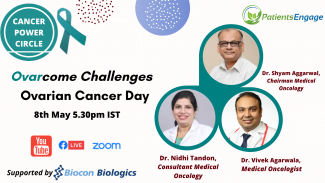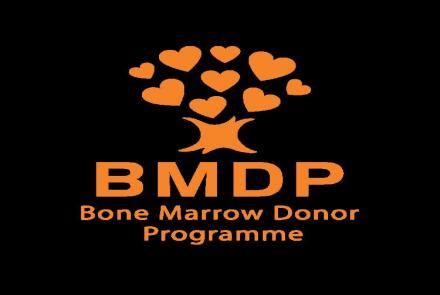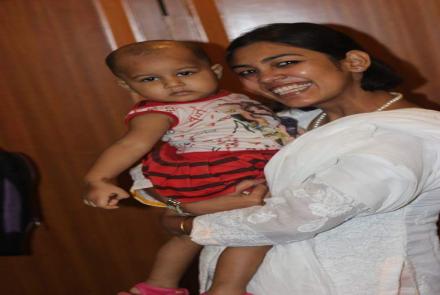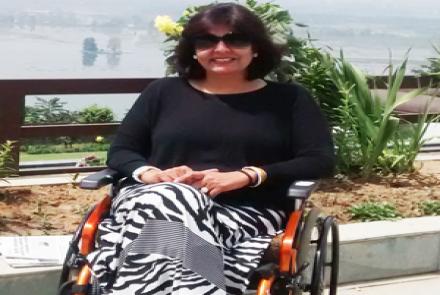Breaking bad news to patients can be daunting and difficult, especially for caregivers. Maya Ramachandran narrates her experience when she and her husband were caught in such a catch-22 situation.
My husband’s close relative was experiencing sudden onset of bleeding after almost 25 years post-menopause, at the age of 75! Fearing that it could be cancer, she had shied away from meeting doctors. After a whole year of having struggled with this almost alone, she …

This webinar is not just for Ovarian Cancer survivors but also for survivors of breast cancer, uterine cancer, colorectal cancer and all women at risk of Ovarian Cancer.
Ovarian Cancer is a difficult to diagnose cancer. So it is very important for us to be aware of the surprising symptoms of Ovarian cancer. We must also know the factors that increase risk.
Additionally, in COVID times, it is important to understand how to continue treatment and when you should vaccinate.
We bring together a panel of
Dr. Shyam Aggarwal, Chairman Medical Oncology, Sir Gangaram Hospital, New Delhi
Dr. Nidhi Tandon, Consultant Medical Oncology Narayana Health, Bengaluru
Dr. Vivek Agarwala, Medical Oncologist, Narayana Superspeciality Hospital, Kolkata
In the video (recording link below) we talk about:
- What is ovarian cancer and who is at risk of ovarian cancer? is it hereditary
- What are the early signs or symptoms of ovarian cancer?
- Who should you consult when you have symptoms
- What is the difference between cyst and cancer and how to differentiate between the two
- Does removal of ovaries reduce lifespan?
- What are the treatment options after diagnosis of ovarian cancer?
- What risks should patients be aware of and role of chemo before or after surgery
- If you have ovarian cancer can you also get breast cancer?
- Even during covid cancer treatment cannot be postponed
- Are video consults useful
- Can cancer patients undergo Covid vaccination
Changed
28/Mar/2022
Community
















